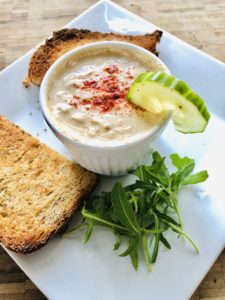The Oxford English Dictionary defines a meal as:
1 Any of the regular occasions in a day when a reasonably large amount of food is eaten.
1.1 The food eaten during a meal.
‘a bar serving light meals’

With differing definitions comes the whole confusion as to what food is and how we consume it. We often take on board the sense of occasion more so than the quality, quantity or suitability of the fayre on offer. Reminisce of the times you have been invited to a gastro-pub to celebrate a birthday, anniversary, or other landmark in a person’s life. I’d wager the food was ‘ok – nothing special’. Indeed its the sense of occasion that lets unscrupulous restaurateurs offer sub-standard menus and charge the earth. I recently had a conversation with one such person who blatantly told me that a carvery for a gathering was £34.95 per person and then invited me to sample said carvery on a Sunday at £11 per head!
Whether you ‘eat to live’ or ‘live to eat’ there is little difference that choice, quality, and company form a the truest translation and execution of a ‘mange a trois’. In the same way as your imagination has made several wrong-turns since reading my use of a certain French phrase (don’t knock it ’til you’ve tried it!) the notion of ‘a meal’ has several myths attached.
1 “It’s not what’s on the plate; but who’s around the table!”
A very true saying. The importance of good companion is paramount when eating. Without good conversation to help along the dining experience then our dinner resembles that of the Simpsons – shovelling away until the plates are empty.
2 “Getting the balance right” – “I need to go on a diet before I come to yours”
Another urban myth involves the fallacy that haute cuisine is calorific beyond belief. Ingredients used have been secreted in the dung of the rare Himalayan gonad beetle for 6 weeks whilst four and twenty yaks looked on and bleated in unison, so that the carrots taste better!
Good food is FOOD!
Whether from the local grocer, butcher, fishmonger, garden, or from a major super-marche – it is still food. Using substitution means offering health, tasty and satisfying: food!
 3 “Do you eat like this everyday?”
3 “Do you eat like this everyday?”
Most people will say they don’t have time to cook “a proper” meal when they get in from work. Well, I am no different. My plate is often filled with convenient food. I said convenient not convenience. So you pop into the local super-marche on your commute home from work and decide upon a ready meal. Good for you because you’re eating!
What though, exactly are you eating? Anything that takes upto 10 minutes to microwave is laced with extra ingredients. That’s your choice and choice is good. Similarly if its not a ‘stop at the coop’ but a fish supper or a sly chinky takeaway/pizza/kebab/indian. Same rules apply. If you give your car keys to a stranger, don’t ever think a) they’ll look after it; b) you’ll see it again! When you delegate your eating choices then you need to trust the source and preparation. “Pass me your car keys – I fancy donuts!”
My idea of convenient food is, ingredients readily to hand that will require the least amount of time to prepare and cook; the choices means sometimes the dish is boring. It isn’t, because I try to keep it wholesome and nutritionally good. So what if I want a piece of fish grilled with a huge portion of broad beans? I will enjoy that meal in the same way a three course extravaganza.
The recipe for a near perfect meal is 1…2…3
Mwynhau x



